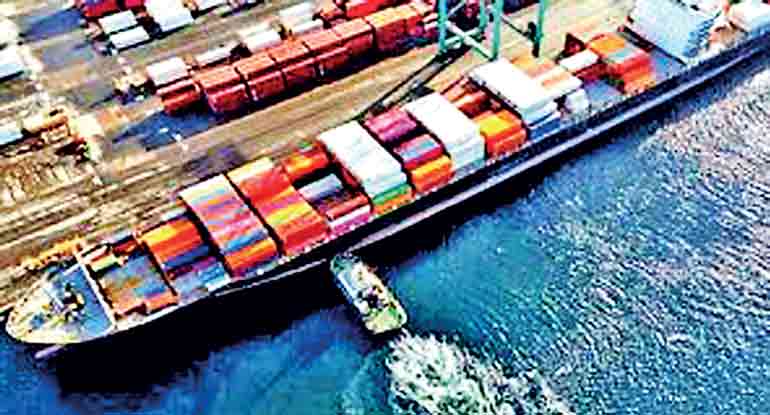Thursday Feb 19, 2026
Thursday Feb 19, 2026
Tuesday, 30 September 2025 01:47 - - {{hitsCtrl.values.hits}}

The Sri Lanka Logistics and Freight Forwarders Association (SLFFA) yesterday urged the Government to urgently reconsider the recent changes to the Simplified Value Added Tax (SVAT) scheme, warning that the move could have serious implications for the logistics and export sectors.
In a statement, SLFFA highlighted that the withdrawal of SVAT for exporters and related service providers has created additional cash flow burdens on companies already grappling with tight margins, fluctuating global freight rates, and rising operational costs.
The association stressed that logistics plays a pivotal role in supporting Sri Lanka’s export competitiveness, and the SVAT mechanism had long served as a crucial facilitator by eliminating unnecessary delays and administrative bottlenecks in VAT refunds.
Logistics solutions providers relied on SVAT across a wide range of operational expenses, including utilities, fuel for transport solutions, warehouse and office rent, capital purchases, and outsourced haulage costs.
According to the association, forcing these items back into the standard VAT refund cycle risks immobilising significant amounts of working capital and increasing administrative inefficiencies.
“Exporters depend heavily on efficient supply chains. By removing SVAT, companies will now face blocked working capital and prolonged refund cycles, which in turn weakens the ability of the sector to remain competitive in the international market,” said SLFFA Chairman Channa Gunawardena.
Echoing similar concerns, Vice Chairman Andre Fernando pointed out: “The SVAT system was not merely about tax efficiency; it was about building confidence in our logistics and export industries. Sudden reversals like this create uncertainty and discourage investment at a time when Sri Lanka needs stability to attract global trade flows.”
SLFFA Treasurer Shavindra Dias added that the financial impact is already being felt across the sector: “Without SVAT, companies are left to bear unnecessary financial stress. This limits their ability to reinvest in infrastructure, technology, and talent, all of which are vital to driving the country’s export growth.”
SLFFA also cautioned that the added financial strain could discourage investment, reduce foreign exchange inflows, and ultimately undermine the country’s national export strategy. The group has called for constructive dialogue between policymakers, exporters, and service providers to craft a pragmatic framework that ensures fiscal discipline while protecting industries vital to Sri Lanka’s economic recovery.
Industry stakeholders argue that SVAT was not merely a tax simplification tool but a strategic enabler for sectors generating foreign exchange. Removing it without an alternative mechanism risks eroding the hard-earned trust of global trading partners who rely on Sri Lanka for timely and cost-effective logistics solutions.
The association urged authorities to take into account the lessons from past policy reversals, where sudden changes have led to uncertainty and eroded investor confidence.
“At a time when the country is striving to rebuild its economy, it is imperative that fiscal measures are aligned with the broader goal of strengthening exports and securing foreign revenue,” the SLFFA said.
The logistics and freight forwarding community now awaits the Government’s response, with many calling for the reinstatement of SVAT or the introduction of a streamlined mechanism that preserves the cash flow efficiency and competitiveness of Sri Lanka’s export sector, it said.